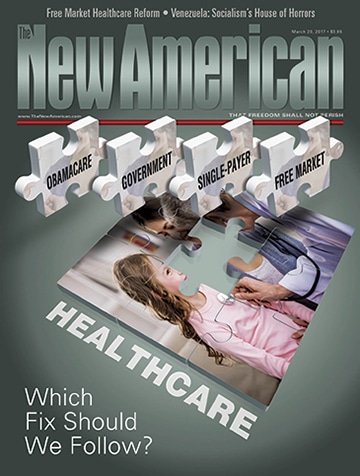Healthcare: Which Fix Should We Follow?
In the Great Healthcare Debate, accusations fly from every corner: “You’re cruel!” “You’re stupid!” “Healthcare is a human right!” “Health insurance only helps insurance executives!” “It’s unfair to the poor!” “They’ll die without preventive screening!” “Doctors are already over-providing care!” “Costs are too high!” “Rationing is wrong!” “All healthcare systems ration, just by different methods!” “Children should not suffer because their parents are poor!” And so on.
It’s very difficult to make an informed decision about what course the United States should follow in its search for a healthcare plan that people can live with — both literally and figuratively live with — because there are many proposed plans; everyone has statistics to back their particular plans; it is a very complicated subject; and people can’t even agree on the definition of the word “fair.” But it is possible to dissect competing claims, by listing what a proper healthcare system should accomplish and checking to see which of the proposed solutions comes nearest to meeting the ideals. And there really are only a handful of main features that should be included in the makeup of an ideal healthcare system.
Here are the features people would want. How best can they be achieved?
First, health insurance — whether publicly or privately provided — should have “portability” and last a lifetime. In other words, someone shouldn’t lose his insurance because he changes jobs or gets old. Most problems in healthcare derive from the fact that, historically, health insurance plans were purchased through an employer, and if one changed jobs or retired, the plan was taken away and a new plan had to be found. (This came about because the FDR administration froze wages during WWII, but did not limit insurance benefits, and so companies basically gave insurance coverage as a type of pay increase.)
Second, health insurance should actually pay to provide care for a person after a person becomes seriously ill or injured. Put another way, via insurance a person should be protected against financial devastation owing to poor health. Under the present system, people who have health insurance often can only access desired care until they become incapacitated through injury or illness and can’t pay their insurance premiums, and then they not only become nearly destitute, they lose desired care.
Third, medical care must be affordable and promote all-around cost savings versus what Americans presently pay. Since the 1970s, the cost of healthcare has risen twice as fast as income growth. The situation is to the point that high medical bills and medical insurance are causing many, if not most, Americans hardship, and they are bankrupting the country.
Fourth, healthcare should be accessible by rich and poor alike, and ideally, rationing would be functionally eliminated.
Fifth, the quality of care should be high and continually improve.
Using these criteria, we can hold healthcare proposals to the light of analysis. Moreover, we can narrow the replacement options for our present healthcare system to four basic categories. One, tweak ObamaCare until it works. Two, go full-on socialist and have government take complete control of healthcare by implementing a system similar to the VA system. Three, create a single-payer, universal healthcare system, with the federal government being the payer, much like Canada. Four, reduce the role of government in healthcare and allow free market reforms to fix things.


